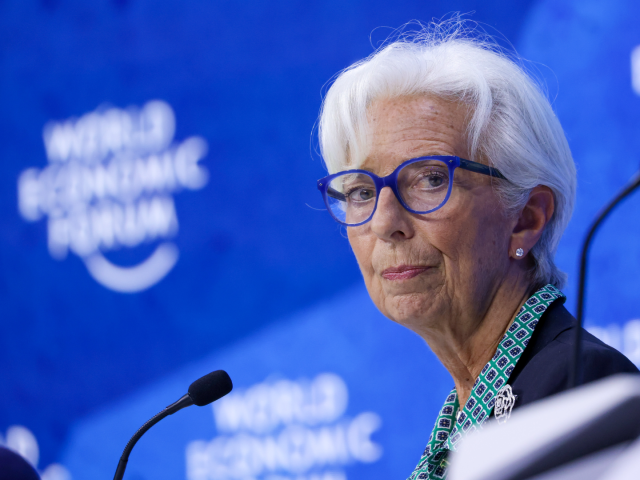The European Central Bank has predicted that the eurozone will not fall into an era of stagflation, following previous predictions that the inflationary crisis would be “temporary”.
In a report issued on Tuesday, the Frankfurt-based central bank said that it does not believe the region will suffer under 1970s-style stagflation, in which high inflation is paired with slow economic growth and high unemployment.
The ECB defined stagflation as inflation the confluence of “price stability objective of two per cent” and zero or negative growth being experienced for at least a two-year period, saying that the current economic situation would need to extend until the end of 2023.
The central bankers predicted that by the end of next year inflation would return to below the two per cent threshold and that the eurozone would avoid a full recession, however, they noted that the reliability of forecasts for both growth and inflation have been dramatically reduced in recent months.
The researchers said that there were significant differences in the economies of today when compared to the 1970s when the Oil embargo imposed by OPEC nations among other factors plunged America and Europe into stagflation. The report pointed to the fact that the economy is much less unionised and the lessened dependency on oil as key points of optimism going forward.
Yet, while it is true that the EU has reduced its need for oil, decades of failed attempts to transition to so-called green energy have left the bloc heavily reliant on Russian natural gas.
Indeed, on Wednesday, the head of the International Energy Agency, Fatih Birol warned European leaders that they should prepare for the eventuality of Russia cutting of gas exports entirely by the winter, urging European countries, such as Germany to keep open its nuclear power plants, which the country has vowed to close by next year.
Germany, the economic powerhouse of the European Union, has already been forced to embarrassingly ramp up coal production and ration natural gas for energy use. Countries across Europe, including Germany, have warned of the possibility of the necessity to ration gas overall, raising the spectre of crushing recessions.
Earlier this month, the World Bank issued a warning of widespread 1970s-style stagflation, pointing specifically to Communist China and to the European Union as a result of the coronavirus lockdowns and the war in Ukraine as regions most likely to be candidates for suffering stagflation.
There are also growing concerns among leading economists of the American economy under President Joe Biden falling into the stagflation trap, which would undoubtedly impact the prospects of the global economy, including the eurozone.
The prediction by the ECB that Europe will avoid a period of stagflation comes after the central bank was forced to admit that its previous prediction of “temporary” inflation was wrongheaded. Similar predictions from former Fed chief turned Treasury Secretary Janet Yellen and the Bank of England have also been walked back in recent weeks.
Follow Kurt Zindulka on Twitter here @KurtZindulka

COMMENTS
Please let us know if you're having issues with commenting.